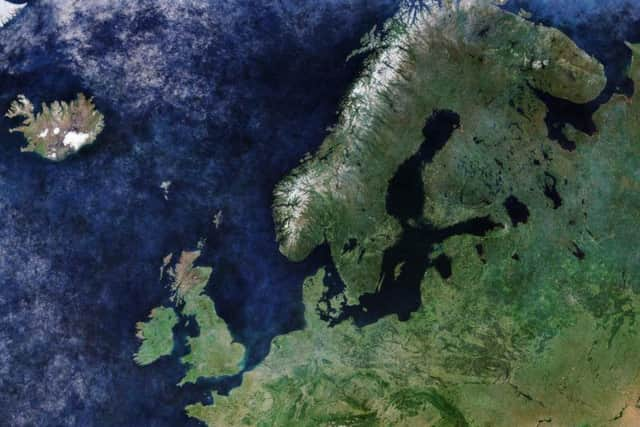Yorkshire scientists to lead new research in climate change data
and live on Freeview channel 276
A new virtual data centre, backed with £5m funding, will bring together 50 PhD researchers from the Universities of Leeds and Edinburgh, with the aim of monitoring climate change.
This could help tackle flooding, experts say, support the country in meeting its net zero targets, and shape future policies on reducing carbon emissions.
Advertisement
Hide AdAdvertisement
Hide AdMinisters, announcing the Government’s backing today, say the data collected could also lead to better protection for towns and cities, from flood defences to monitoring pollution.


“The UK is a world-leader in tackling climate change with our clear target to eliminate our country’s contribution by 2050,” said Science Minister Chris Skidmore. “The University of Leeds is helping us meet this ambition through its ground-breaking research in tackling this crucial issue.”
Satellite images are a “powerful tool” in showing the speed of the impact of climate change, he added, from melting glaciers to shrinking forests.
“This new satellite data centre brings together the University of Leeds, industry-leaders, and a new cohort of talent who will provide invaluable insight into land use as well as the effects of climate change. Their insights could help to influence future government policies, while also making certain the UK remains a world-leader in earth observation.
Advertisement
Hide AdAdvertisement
Hide Ad“This is an exemplar for innovation-led advanced manufacturing, driving university-industry collaboration, producing industry-relevant technology and innovative solutions in the heart of the Northern Powerhouse.”
New satellite centre
The Centre for Satellite Data in Environmental Science (SENSE) is a virtual project, set up by the Natural Environment Research Council (NERC) and the UK Space Agency.
It will see PhD researchers, Earth Observation scientists and industry leaders work with 18 businesses, including Airbus and Unilever, who will help fund, design and supervise projects.
Professor Duncan Wingham, executive chair of NERC, said: “The researchers will support cutting-edge scientific discovery, new data-based products and new Earth observation technologies that will provide benefits to society. Working with the UK Space Agency gives students unique opportunities to engage with the wider community.”
Advertisement
Hide AdAdvertisement
Hide AdBeth Greenaway, head of Earth observation and climate at the UK Space Agency, said: “We are at the forefront of innovative new technology for measuring our planet from space.
"We have many of the world’s leading scientists and academics who can use this data for new discoveries, and we have a commercial sector able to build the space missions and create services for the public and private sector.
“The rapid growth of the Earth Observation sector means we need to attract thousands of people with the right skills over the next 10 years.”
Dr Anna Hogg, co-director of the centre in the School of Earth and Environment at the University of Leeds, said: “Earth observation satellites collect hundreds of terabytes of data per day, delivering important information about how fast glaciers flow, the size of forest fires in the Amazon, and the quality of the air that we breathe.
“We have a fantastic opportunity to grow the community of researchers with the skills and knowledge to measure the how our environment is changing.”